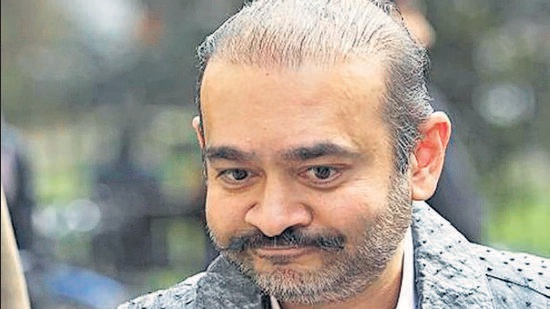Last leg of Nirav Modi hearing to start today
In February 2021, the Westminster Magistrates’ Court had found no bars to Nirav Modi’s extradition to India, but during the appeal application, his legal team managed to convince the high court to accept fresh evidence.
More than three years after the arrest of fugitive diamond merchant Nirav Modi, in March 2019, the London high court will hear his much-delayed appeal. Over the next three days, Lord Justice Stuart-Smith and Justice Jay will preside over the hearing, which marks the final leg of the judicial process.

In February 2021, the Westminster Magistrates’ Court had found no bars to Modi’s extradition to India, but during the appeal application, his legal team managed to convince the high court to accept fresh evidence. The two-judge bench will thus examine the evidence by a retired high court judge on the sovereign assurance given by India about access to private healthcare in Indian jail.
Two health experts from either side will also submit their reports, and although the court in June 2022 directed them to provide a list of points on which they agree and disagree, it is expected that the list of disagreements will be longer.
The crucial issue is whether Nirav Modi’s mental health is such that his extradition to India will render him incapable to resist the impulse to die by suicide in Mumbai’s Arthur Road Jail where he will be lodged. District Judge Samuel Goozee had ruled that the risk of suicide was not imminent and hence Modi’s extradition would not be oppressive. “The judge made an error of law,” said Edward Fitzgerald, King’s Counsel, representing Modi during the June 2022 appeal hearing in the high court.
The discussion on the likelihood (or lack of it) of suicide by Nirav Modi emanates from the Extradition Act 2003 that guides the extradition norms between both the countries. As per the rules, extradition must not result in the breach of the requested person’s human rights, which includes access to healthcare and suitable prison conditions, among other requirements.
“They now raise concern that access to private healthcare is now ambiguous,” Helen Malcolm, King’s Counsel, representing India, had countered Fitzgerald, insisting that the district judge’s ruling did not leave any room for the appeal.
If the high court had remitted the case back to the district judge to take stock of new evidence, which is what usually happens, the case would have seen a much longer delay. Instead, the high court retained the appeal, which means that a judgment could be out over the next few weeks. There is also a possibility that the court may give its ruling at the end of the hearing itself, giving the written judgment later.
Nirav Modi continues to be in Wandsworth prison since his arrest after unsuccessful attempts to get bail from both the Westminster Magistrates’ Court and the high court. During his incarceration his lawyers repeatedly pointed out that his mental health has worsened, especially during Covid, and that he has faced violence from inmates. The Crown Prosecution Service (CPS), representing India, on the other hand, has maintained that adequate healthcare will be provided to Nirav Modi on his extradition to India.
Nirav Modi faces charges of defrauding Punjab National Bank to the tune of $2 billion and money laundering.






